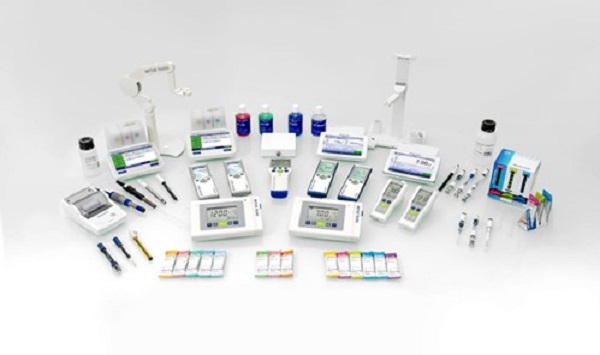Tejas Padte, courtesy of Mettler Toledo | April 05, 2024
Questions to ask before choosing the right meter
When it comes to choosing a pH meter for an application, there are many factors to consider. From the specific parameters that must be measured, to the location where the user will be measuring to the level of risk and compliance support required and even potential future expansion, choosing the right meter can be a daunting task. In this article, we’ll explore four key questions to consider when choosing a meter to help simplify the process.
Where would you like to measure?
One of the first questions to consider is where the user intends to measure — indoors or outdoors? Is it a laboratory or an at-line process? Will measurements be made in a hazardous environment, such as a chemical plant or an oil rig, or in a confined space? The location of measurements will help determine the type of meter needed. For example, if measuring in a laboratory environment, a meter that can withstand exposure to harmful chemicals or is ingress-proof (IP-rated) is essential.
 Selecting the right pH meter requires careful consideration of important factors such as accuracy, precision, speed and durability. Source: Mettler Toledo
Selecting the right pH meter requires careful consideration of important factors such as accuracy, precision, speed and durability. Source: Mettler Toledo
Which parameters are to be measured?
The parameters to be measured will also help determine the type of meter needed. Different meters are designed to measure different parameters, such as pH, conductivity, ORP, dissolved oxygen or ion concentration. Some meters can measure multiple parameters, while others specialize in a specific parameter. Consider which parameters must be monitored and look for meters that are designed to measure those accurately and reliably.
What about risk reduction and compliance support?
In some applications, risk reduction and compliance support are critical factors to consider. For example, if measuring pH levels in ultrapure water for pharma application, a meter will be needed that is compliant with the USP or Eur. Ph. regulations and can provide accurate and reliable measurements to ensure the quality of the ultrapure water. For such applications, it is important to consider the specifications they share.
Is an expansion likely in the future?
Finally, consider whether measurement capabilities are to be expanded in the near future. Will additional parameters need to be measured in the near future, and is the meter now in use compatible? Will certain accessories be required, like a printer that can print results or an autosampler that can automate the measurement process? Look for meters that are flexible and can be easily expanded to meet future needs. Some meters come with modular designs that enable the measurement of additional parameters as needed.
In conclusion, choosing the right meter for an application requires careful consideration of various factors. By asking these four key questions and researching the available options, users can choose a meter that meets specific needs and provides accurate and reliable measurements for years to come.
To learn in detail which pH meter would best meet specific requirements, visit mt.com. The Good Electrochemistry Practice Recommendation tool can also assist in selecting the most suitable pH system for an application.
INDUSTRY RELATED
UNLIMITED FREE ACCESS TO THE WORLD’S BEST IDEAS
SIGN UP TO SEE MORE
This is embarrasing…
An error occurred while processing the form. Please try again in a few minutes.
Customize Your GlobalSpec Experience
This is embarrasing…
An error occurred while processing the form. Please try again in a few minutes.

